16 Effective Home Remedies For Red Eyes And Prevention Tips
Practical and effective hacks to relieve redness and irritation of the eyes.

Image: Shutterstock
Red eyes refer to a condition where the whites of the eyes appear red or bloodshot due to irritated or swollen blood vessels. The prospect of walking around with the condition is not appealing. If you too want to get rid of it to work to avoid a load of questions, some home remedies for red eyes can help. There may be a number of reasons behind getting red, bloodshot eyes and they can also suggest a variety of health problems, but all instances could benefit from some simple remedies that can reduce redness and soothe discomfort. Scroll down to learn about these natural treatments, along with more information about red eyes and their causes.
In This Article
What Causes Red Eyes?

Red eyes can be triggered by various factors. The most common cause of the condition is inflamed vessels on the surface of your eyes. This irritation can be caused by irritants like:
- Sun exposure
- Dry air
- Dust
- Allergies
- Microbes like bacteria and viruses
- Coughing
- Cold or flu
Constant coughing or eye strain can result in a specific condition called subconjunctival hemorrhagei A harmless condition characterized by red spots on the white of the eye caused by broken blood vessels. , which causes red blotches to appear in any of your eyes. However, it clears up in 10 days.
The more serious causes of red eyes are infections that may occur in different parts of your eyes and give rise to additional symptoms like eye pain, discharge, or even changes in your vision.
Some infections that lead to the occurrence of red eyes include:
- Inflamed eyelash follicles (blepharitis)
- Inflammation of the membrane that coats the surface of your eyes (conjunctivitis or pink eye)
- Ulcers covering the eyes, called corneal ulcers
- Inflamed uvea (uveitis)
Eye redness can also be caused by:
- Injured eye
- Trauma
- Acute glaucomai A condition that damages the optic nerve, causing blurred vision or vision loss due to increased pressure inside the eye. that causes pain by increased pressure on the eye
- Scratched cornea caused by irritants or use of lens
- Bleeding issues
In these cases, it is best to visit a doctor immediately to prevent serious complications like permanent vision loss.
If you’re dealing with red eyes, you might also find it helpful to explore home remedies for eye infections, which can address underlying causes of redness.
 Quick Tip
Quick TipIt is best to do whatever you can to treat the condition. And what could be better than some quick and natural home remedies? We have compiled a list of the best remedies to help you get rid of red eyes.
Key Takeaways
- Flu, allergies, and microbes, like bacteria and viruses, are common causes of red eyes.
- Place a cold compress directly on the affected eye to reduce swelling and redness.
- The soothing and cooling properties of cucumber may shrink blood vessels in the eyes and reduce inflammation.
- Other natural remedies to treat red eyes include aloe vera, coconut oil, and cold tea bags.
How To Get Rid Of Red Eyes Naturally
- Cold Compress
- Cucumber
- Rose Water
- Tea Bags
- Honey
- Chamomile Tea
- Aloe Vera
- Castor Oil
- Apple Cider Vinegar
- Coconut Oil
- Green Tea
- Lemon Juice
- Essential Oils
- Potato
- Vitamins
Home Remedies To Treat Bloodshot Eyes
1. Cold Compress
You Will Need
An ice pack
What You Have To Do
- Apply the ice pack directly to the affected eye.
- Hold it for about a minute and remove.
- Repeat 2 to 3 times after every 5 minutes.
How Often You Should Do This
Do this at least twice daily.
Why This Works
Cold compresses are best to treat the inflammation and swelling in your eyes. They also help in constricting the blood vessels of the affected eye, which helps reduce the redness (1).
2. Cucumber
You Will Need
Cucumber slices
What You Have To Do
- Cut a few slices of a refrigerated cucumber.
- Place a slice on each eye.
- Leave it on for about 30 minutes.
How Often You Should Do This
Do this twice daily for best results.
Why This Works
Cucumber is one of the best remedies for treating red eyes. It has soothing and cooling properties that can help in shrinking the blood vessels in your eyes and treat the condition (2).
3. Rose Water
You Will Need
- Rose water (as required)
- Cotton pads
What You Have To Do
- Take two cotton pads and soak them in rose water.
- Place the soaked pads on your eyes.
- Leave them on for 15 minutes.
How Often You Should Do This
You must do this 1 to 2 times daily.
Why This Works
Rose water has a soothing and relaxing effect on your eyes. Its anti-inflammatory properties reduce the inflammation and irritation in your eyes (3).
4. Teabags

You Will Need
2 used teabags
What You Have To Do
- Take two used tea bags and refrigerate them.
- After an hour, take them out and place them on your eyes.
- Leave them on for 15 to 20 minutes.
How Often You Should Do This
Do this at least twice daily.
Why This Works
Tea contains tanninsi A type of plant compound naturally found in foods and beverages which contains antioxidant properties. that can help in soothing red eyes. This is mainly because of the anti-inflammatory properties exhibited by tannins (4).
5. Honey And Milk
You Will Need
- 1 tablespoon of honey
- 1 tablespoon of milk
- Cotton pads
What You Have To Do
1. Mix a tablespoon each of warm milk and honey.
2. Soak a few cotton pads in this mixture and place them directly on your eyes.
3. Leave them on for about 30 minutes and wash your eyes with water.
How Often You Should Do This
Do this once daily .
Why This Works
Both milk and honey have natural soothing and anti-inflammatory properties that can speed up the healing of your eyes (5).
6. Chamomile Tea
You Will Need
- 1 teaspoon of chamomile tea
- 1 cup of hot water
- Cotton pads
What You Have To Do
- Add a teaspoon of chamomile tea to a cup of hot water.
- Steep for 5 minutes and strain.
- Once the tea cools down a bit, refrigerate it for an hour.
- Soak two cotton pads in it and place them on your eyes.
- Leave them on for 30 minutes and wash your eyes with chamomile tea.
How Often You Should Do This
Do this 1 to 2 times daily.
Why This Works
Chamomile tea is an extremely beneficial remedy for treating red eyes. This is mainly due to its anti-inflammatory properties that can help in reducing the inflammation and swelling in your eyes (6).
7. Aloe Vera
You Will Need
- Aloe vera gel
- Water
- Cotton pads
What You Have To Do
- Take some aloe gel and blend it with an equal amount of water.
- Refrigerate the mixture for an hour.
- Soak two cotton pads in the refrigerated aloe mixture and place them over your eyes.
- Leave them on for 20 to 30 minutes.
How Often You Should Do This
Do this at least once daily.
Why This Works
Aloe vera possesses anti-inflammatory and antioxidant properties that help in soothing red and irritated eyes (7).
8. Castor Oil

You Will Need
1-2 drops of 100% organic castor oil
What You Have To Do
- Pour a drop of 100% organic castor oil in each eye.
- Blink away to clear your vision.
How Often You Should Do This
You must do this once daily until you notice an improvement in your condition.
Why This Works
Castor oil contains ricinoleic acid, which is a strong anti-inflammatory compound that not only helps in lubricating your eyes but also reduces inflammation and swelling (8).
9. Apple Cider Vinegar
You Will Need
- 1 tablespoon of apple cider vinegar
- 1 cup of water
- Cotton balls
What You Have To Do
- Mix a tablespoon of apple cider vinegar with a cup of water.
- Soak two cotton balls in this mixture and place them over closed eyes.
- Leave them on for 30 minutes.
How Often You Should Do This
Do this 1 to 2 times daily.
Why This Works
Apple cider vinegar can also help treat red eyes. It contains acetic acid that has anti-inflammatory and antimicrobial properties, which can naturally reduce the redness of your eyes and prevent further infection in the irritated eye (9), (10).
Note: In some individuals, this remedy may worsen irritation and aggravate the appearance of redness in the eye. Therefore, those with sensitive eyes must use it with caution or avoid it entirely.
10. Coconut Oil
You Will Need
1-2 drops of 100% virgin coconut oil
What You Have To Do
- Pour a drop of 100% virgin coconut oil in the inner corners of both your eyes.
- Blink away the excess oil.
How Often You Should Do This
You must do this twice daily for a few weeks.
Why This Works
Coconut oil is made up of medium-chain fatty acids that are highly moisturizing and anti-inflammatory (11). It helps in keeping your eyes lubricated and reduces the inflammation (12).
11. Green Tea
You Will Need
- 1 teaspoon of green tea
- 1 cup of hot water
- Cotton pads
What You Have To Do
- Add a teaspoon of green tea to a cup of hot water.
- Steep for 5 minutes and strain.
- After the tea cools down a bit, refrigerate it for an hour.
- Soak two cotton pads in the refrigerated green tea and place them on closed eyes.
- Leave them on for at least 20 to 30 minutes.
How Often You Should Do This
You must do this 1 to 2 times daily.
Why This Works
Green tea contains polyphenolsi Polyphenols are beneficial plant compounds with antioxidant properties that may protect against various diseases. that possess strong anti-inflammatory and antioxidant properties (13), (14). They relieve irritation and redness in your eyes by reducing the inflammation causing it.
12. Lemon

You Will Need
- 2-3 drops of lemon juice
- Purified water
- Eyecup
What You Have To Do
- Add two to three drops of lemon juice to an eyecup and fill it with purified water.
- Use this to wash your eyes for 20 to 30 seconds.
How Often You Should Do This
You must do this once daily.
Why This Works
Given the anti-inflammatory and bactericidal properties of lemon juice, it is no surprise that it works wonders for the eyes (15), (16). Lemon juice can help relieve inflammation that results in red eyes and also protects your eyes from further infection.
Caution: This remedy may sting.
13. Essential Oils
Caution:
Essential oils can sometimes trigger allergic reactions in some people. Always start with a patch test to ensure they are safe for you. Also, since essential oils are highly concentrated, always dilute them with carrier oils to avoid irritation and burns.
a. Tea Tree Oil
You Will Need
- 2 drops of tea tree essential oil
- 4 cups of hot water
- A big bowl
- A clean sheet or towel
What You Have To Do
- Fill a large bowl with four glasses of hot water.
- Add two to three drops of tea tree oil to it.
- Bend over the bowl, with your eyes directly above the emanating steam.
- Cover your head with a clean towel or sheet.
- Let the steam work on your eyes for about 10 to 15 minutes.
How Often You Should Do This
You should do this thrice daily.
Why This Works
Tea tree oil is mainly known for its anti-inflammatory and antimicrobial properties and is widely used to treat various skin ailments (17). These properties also make it beneficial in treating red and inflamed eyes as it reduces the inflammation and treats the infection causing it.
Note: This remedy should be used only during infective red eye conditions like conjunctivitis. Red eye caused due to fatigue and strain may worsen with steaming.
b. Lavender Oil
You Will Need
- 2-3 drops of lavender oil
- 4 cups of hot water
- A large bowl
- A clean towel or sheet
What You Have To Do
- Add two to three drops of lavender essential oil to four cups of hot water.
- Transfer this water to a large bowl and bend over it.
- Cover your head with a clean towel or bedsheet.
- Let the steam work on your eyes for about 15 minutes.
How Often You Should Do This
Do this 3 to 4 times daily.
Why This Works
Lavender oil reduces inflammation in your eyes (18). It also possesses antimicrobial properties that can fight potential infections that may be responsible for the condition (19).
Lavender essential oil is also one of the most effective home remedies for eye rash treatment. It can be beneficial, especially if the redness is accompanied by irritation or bumps.
14. Potato
You Will Need
A sliced potato
What You Have To Do
- Take a peeled and refrigerated potato and thinly slice it.
- Place a potato slice on each eye.
- Leave it on for 20 to 30 minutes.
How Often You Should Do This
Do this twice daily.
Why This Works
Potato possesses astringent properties that help in shrinking the blood vessels surrounding your eyes (20). It also helps in soothing irritated eyes.
15. Vitamins
Vitamins A, C, E, B2 (Riboflavin), B6, and B12 are good for the health of your eyes (21), (22), (23). They can help relieve red eyes and also prevent the recurrence of the condition.
You can get the required amounts of these vitamins by consuming citrus fruits, green vegetables, carrots, sweet potatoes, berries, milk, yogurt, fish, eggs, and almonds. Other remedies and relaxation techniques like witch hazel, turmeric, saline solution, eye bath, eye massage, and warm compress may help treat, reduce, and protect your eyes from inflammation (24).
16. Bilberry Extract
You Will Need
- Bilberry extract (available in liquid or capsule form)
What You Have To Do
1. Follow the recommended dosage instructions provided on the packaging.
2. Take the bilberry extract orally with water, before or after meals, as instructed.
How Often You Have To Do This
Once or twice daily.
Why It Works
Bilberry extract is rich in anthocyanins, which are powerful antioxidants that help strengthen blood vessels, improve circulation, and reduce inflammation. The extract is also a popular natural remedy for various eye-related issues, including dry eyes (25). You can also explore simple home remedies for dry eyes to alleviate both dryness and redness in your eyes.
Try these remedies and bid goodbye to red eyes forever. While most people may find relief after using these remedies, their effectiveness may vary from person to person. In case you do not find relief even after using them or your symptoms worsen, it is recommended to visit a doctor. You should also do the same in case of the following:
- Increased pain
- Increased irritation
- Excess mucus formation
- Headache
- Fever
- Sensitivity to light
To prevent recurrence of this condition, you must also follow a few tips. They are discussed below.
Prevention Tips

- Wash your hands if you have been in contact with anyone having an eye infection.
- Remove your eye makeup every day before going to bed.
- Do not wear contact lenses for prolonged periods.
- Always clean your contact lenses before and after using them.
- Avoid indulging in activities that may cause strain to your eyes.
- Avoid contact with substances that may cause irritation to your eyes.
- If any foreign substance or irritant enters your eye(s), wash with water immediately.
Alongside following these eye-care tips, you should also monitor your eye health through routine check-ups. This will allow early detection of potential problems and ensure timely treatment.
 Quick Tip
Quick TipInfographic: When Should You Visit A Doctor If You Have Red Eyes
Usually, red eyes are nothing to worry about. They usually resolve on their own. However, there are situations when consulting with a healthcare expert is the best option for determining the extent of an injury or diagnosing a severe problem. Check out the infographic below to find out when you should see a doctor for red eyes.
Some thing wrong with infographic shortcode. please verify shortcode syntax
The inflammation of blood vessels in the eye can lead to red eyes. Various factors like dry air, sun exposure, coughing, flu, allergens, dust, and microbes may irritate the vessels and trigger inflammation. In addition, eye infections, trauma, or injury may also lead to red eyes. Cold compress, cucumber, honey, tea bags, rose water, green tea, lemon juice, potato, and essential oils are some of the home remedies that are effective in combating the redness in the eyes and providing relief. However, home remedies may not be enough in some cases, and you may need antibiotic drops or other medication to treat bloodshot eyes.
Frequently Asked Questions
What is the best eye drop used for red eyes?
Naphazoline is one of the most widely used eye drops used to treat red and inflamed eyes, especially if the condition is caused by allergies. You can also opt for any of the natural options mentioned in this post as a safer alternative.
What will happen if pink eye is left untreated?
If the pink eye is caused by a viral infection, it usually clears up on its own without any medical treatment. But if your pink eye or conjunctivitis is a result of a bacterial infection, it may cause serious damage to your eyes if left unattended.
Why has my eye been twitching for a week?
Stress, fatigue, or even consuming too much caffeine can cause twitching eyes. This usually goes away within a few days or weeks.
What is the most attractive eye color?
According to a survey, green eyes are the most attractive.
How long does it take for red eyes to heal?
The symptoms usually become better in three to five days and heal almost completely in a week or two.
Does salt water clear red eyes?
Salt water may not clear red eyes. But it may help cleanse your eyes and speed up healing. To use it, mix ½ teaspoon of salt with a cup of warm, distilled water. Rinse your eyes once a day using this solution.
Why is only one of my eyes red?
If only one of your eyes is red, it might be because of an inflammation of the tiny blood vessels in the eyes. It may affect only one eye.
How long do bloodshot eyes take to heal?
Bloodshot eyes may take around a week to heal. However, it may take longer than a week if it is severe.
Can wrong eyeglasses cause eye redness?
Wearing wrong eyeglasses for a prolonged period may result in itching and burning sensations, leading to eye redness.
Does baking soda help red eyes?
Anecdotal evidence suggests that using baking soda rinse with water may help manage red eyes as it soothes the eyes. However, concrete research is lacking to support this claim.
Redness in the eyes can be caused by multiple irritants in the environment or allergic reactions. Watch the video below for some tips to soothe redness and irritation in your eyes.
References
Articles on StyleCraze are backed by verified information from peer-reviewed and academic research papers, reputed organizations, research institutions, and medical associations to ensure accuracy and relevance. Read our editorial policy to learn more.
- Effect of local cold-pack application on systemic anabolic and inflammatory response to sprint-interval training: a prospective comparative trial
https://www.ncbi.nlm.nih.gov/pmc/articles/PMC2762537/ - Iminosugar idoBR1 Isolated from Cucumber Cucumis sativus Reduces Inflammatory Activity
https://www.ncbi.nlm.nih.gov/pmc/articles/PMC7346245/ - Anti-inflammatory and Antihistaminic Study of a Unani Eye Drop Formulation
https://www.ncbi.nlm.nih.gov/pmc/articles/PMC3661513/ - Efficacy of Green Tea Extract for Treatment of Dry Eye and Meibomian Gland Dysfunction
https://www.ncbi.nlm.nih.gov/pmc/articles/PMC5376801/ - Analgesic and anti-inflammatory effects of honey: the involvement of autonomic receptors
https://pubmed.ncbi.nlm.nih.gov/24318481/ - Chamomile an anti-inflammatory agent inhibits inducible nitric oxide synthase expression by blocking RelA/p65 activity
https://www.ncbi.nlm.nih.gov/pmc/articles/PMC2982259/ - Aloe vera extract activity on human corneal cells
https://pubmed.ncbi.nlm.nih.gov/22338121/ - Effect of ricinoleic acid in acute and subchronic experimental models of inflammation
https://www.ncbi.nlm.nih.gov/pmc/articles/PMC1781768/ - Anti-obesity and anti-inflammatory effects of synthetic acetic acid vinegar and Nipa vinegar on high-fat-diet-induced obese mice
https://www.ncbi.nlm.nih.gov/pmc/articles/PMC5532206/ - Antimicrobial activity of apple cider vinegar against Escherichia coli, Staphylococcus aureus and Candida albicans; downregulating cytokine and microbial protein expression
https://idp.nature.com/authorize?response_type=cookie&client_id=grover&redirect_uri=https%3A%2F%2Fwww.nature.com%2Farticles%2Fs41598-017-18618-x - Anti-inflammatory, analgesic, and antipyretic activities of virgin coconut oil
https://pubmed.ncbi.nlm.nih.gov/20645831/ - A Pilot Study: The Efficacy of Virgin Coconut Oil as Ocular Rewetting Agent on Rabbit Eyes
https://www.ncbi.nlm.nih.gov/pmc/articles/PMC4352907/ - Anti-inflammatory Action of Green Tea
https://pubmed.ncbi.nlm.nih.gov/27634207/ - Antioxidant effects of green tea
https://www.ncbi.nlm.nih.gov/pmc/articles/PMC3679539/ - Anti-inflammatory effect of lemon mucilage: in vivo and in vitro studies
https://pubmed.ncbi.nlm.nih.gov/16435583/ - Bactericidal activity of lemon juice and lemon derivatives against Vibrio cholerae
https://pubmed.ncbi.nlm.nih.gov/11041258/ - Melaleuca alternifolia (Tea Tree) oil: a review of antimicrobial and other medicinal properties
https://pubmed.ncbi.nlm.nih.gov/16418522/ - Antioxidant, analgesic and anti-inflammatory effects of lavender essential oil
https://pubmed.ncbi.nlm.nih.gov/26247152/ - Biological activities of lavender essential oil
https://pubmed.ncbi.nlm.nih.gov/12112282/ - Characterization of Bitter and Astringent Off-Taste Compounds in Potato Fibers
https://pubmed.ncbi.nlm.nih.gov/32930579/ - Nutrition supplements and the eye
https://pubmed.ncbi.nlm.nih.gov/9614529/ - Riboflavin Deficiency
https://www.ncbi.nlm.nih.gov/books/NBK470460/ - Nutritional supplements for age-related macular degeneration
https://www.ncbi.nlm.nih.gov/pmc/articles/PMC2909501/ - A Novel Multi-Ingredient Supplement Reduces Inflammation of the Eye and Improves Production and Quality of Tears in Humans
https://link.springer.com/article/10.1007/s40123-021-00357-y - Bilberry-containing supplements on severe dry eye disease in young and middle-aged adults: A 3-month pilot analysis
https://pubmed.ncbi.nlm.nih.gov/36742436/
Read full bio of Dr. Zeel Gandhi
Read full bio of Shaheen Naser
Read full bio of Arshiya Syeda
Read full bio of Dipti Sharma







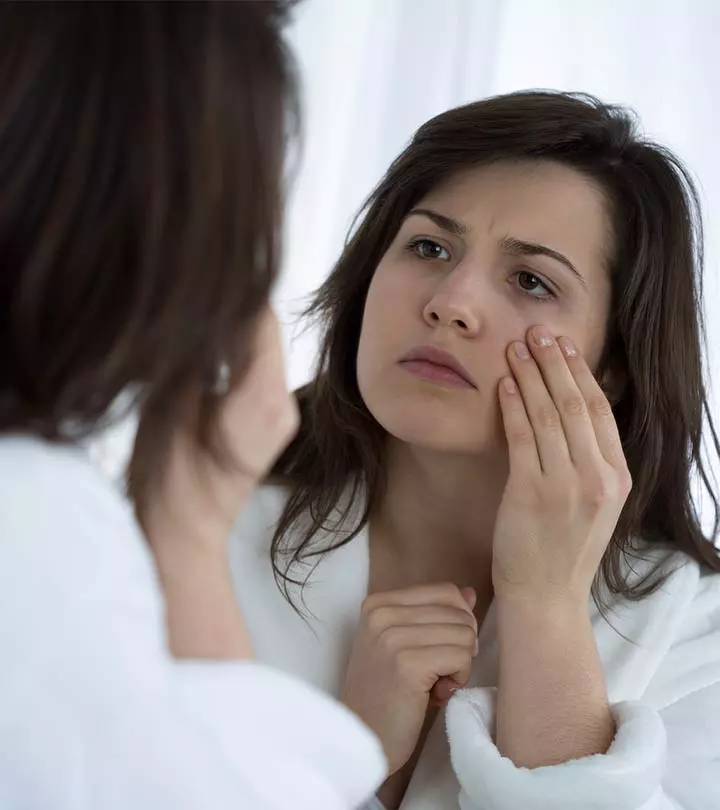

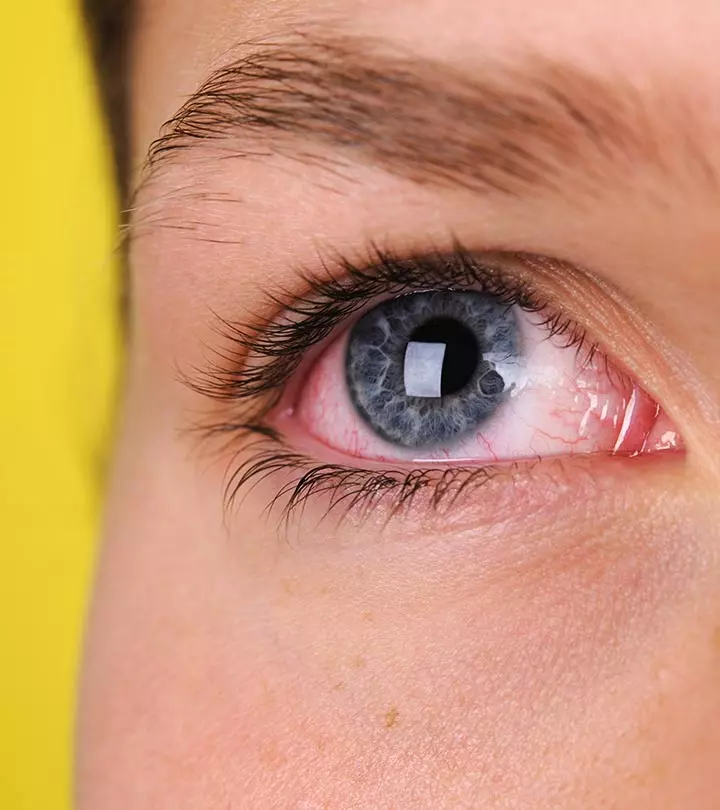

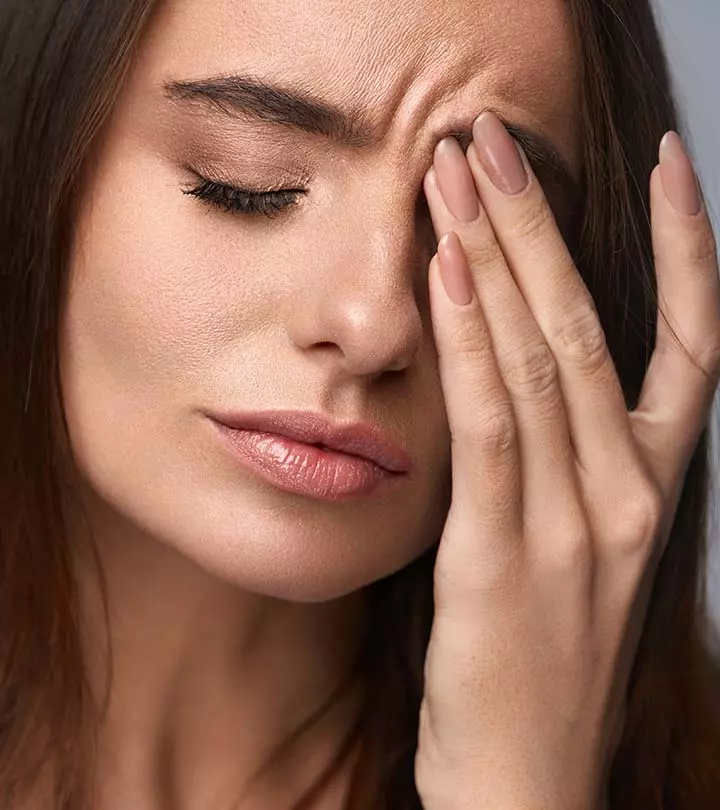










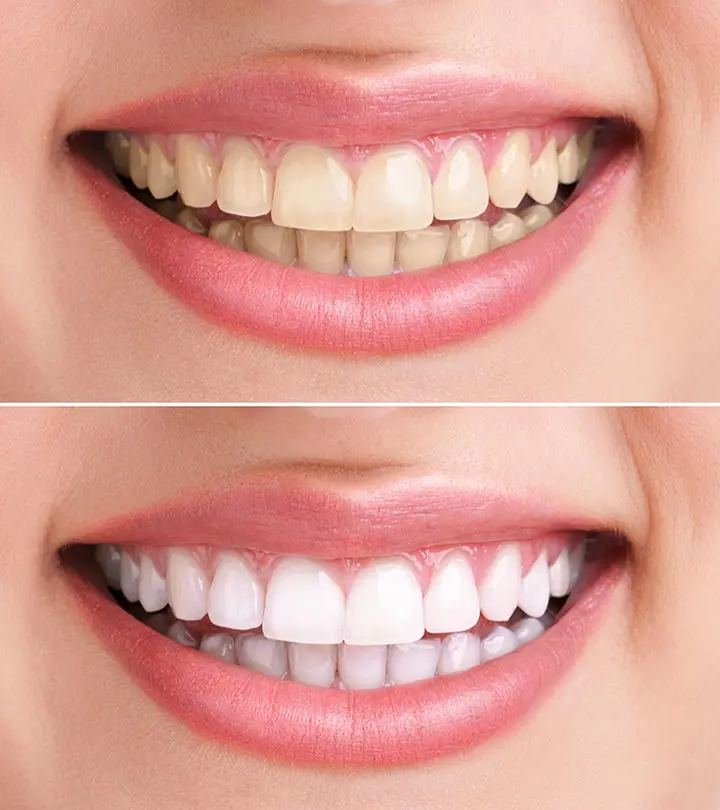

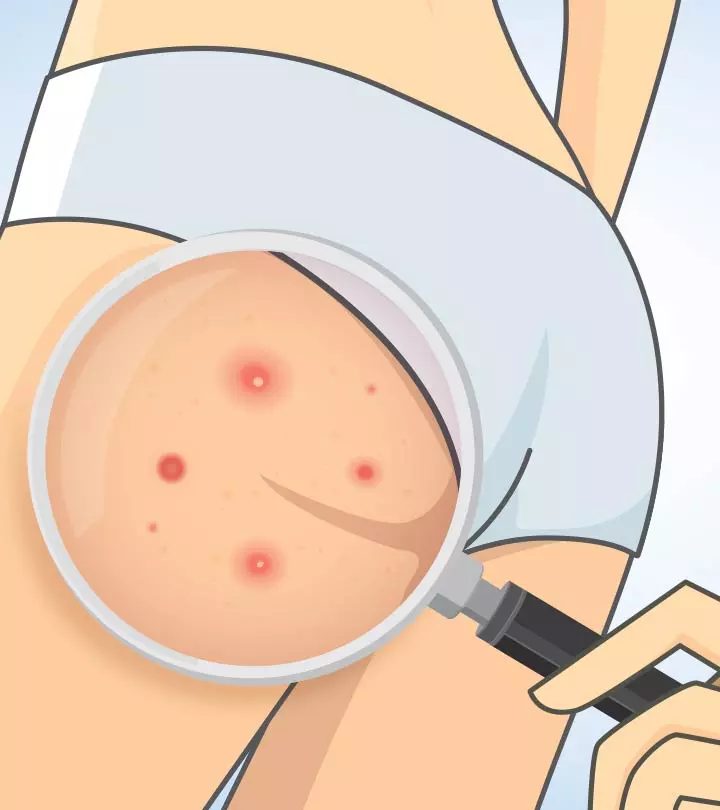


Community Experiences
Join the conversation and become a part of our empowering community! Share your stories, experiences, and insights to connect with other beauty, lifestyle, and health enthusiasts.